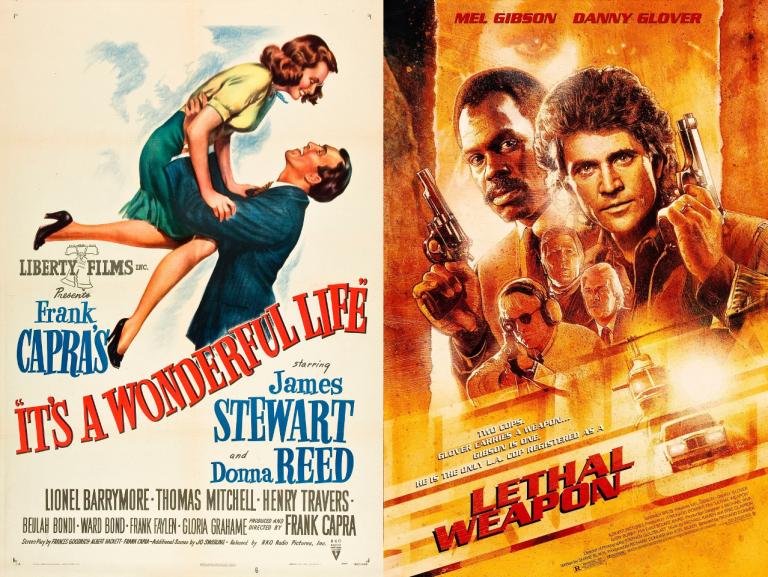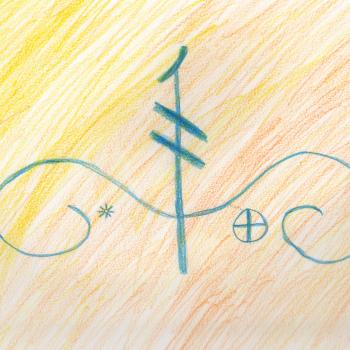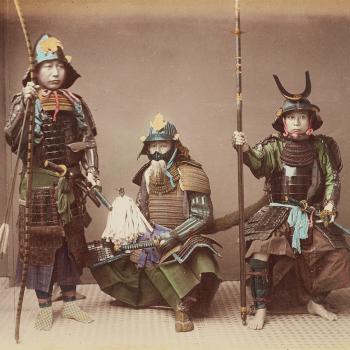(I’m not usually one for “trigger warnings”, but given the general state of the world and the stress it’s putting on everyone’s mental health: this post mentions suicide. It is very much not a sign that you should kill yourself — rather the opposite, as you will see if you read the whole thing. I would hate to lose a reader, so: in the US, the National Suicide Prevention Lifeline toll-free number is 1-800-273-8255. Outside the US, there are crisis lines in your country too. Stay with us.)
If I ask you to name a Christmas movie, if you’re a traditionalist you might say It’s a Wonderful Life. If you’re of a more contrarian bent you might cite the 80s action movie Lethal Weapon.
Now the fundamental plots of these movies don’t relate to Christmas. You could re-write them to take place at a different time of year, and not lose the main plotline. But they have something important in common, something which ties them to the seasonal cycle — to darkness and what’s often called “seasonal depression” or “seasonal affective disorder” — and with the traditional Christmas story.
In both of these movies, the protagonists are near the end of their metaphorical rope. They are walking though the dark places. George Bailey is about to jump off a bridge. Martin Riggs is contemplating shooting himself, and seems to be looking to die on the job — an inversion of the “suicide by cop” phenomenon, a cop looking to commit “suicide by criminal”.
(Lethal Weapon is an 80s action movie, written when the militarization of policing was in its embryonic stages. We could analyze it from our contemporary abolish the police perspective, but let’s take it in the context and spirit with which it was first presented. We’re also going to ignore the sequels.)
So it’s relevant that these movies about men walking though the dark places of the soul, take place in the dark of the year.

(I use “men” rather than “people” deliberately here, as the suicide rate for US men is three to four higher than that for women, and both these movies are about men who embody male archetypes, the Lover and the Warrior. That’s not to minimize or ignore the challenges that women face, it’s just an observation about these two pieces.)
When I first started seeing my acupuncturist many years ago, I told her that in the winter I feel like I just don’t have as much energy. She looked at me like I was a not very bright child and said, “It’s winter. You’re supposed to slow down. That’s the natural cycle.”
Suicide, of course, is not part of the natural cycle. But when distorted by human society, the resulting cycle can take us not just to a place of slowness and inward-turning yin, but to a place of despair, of a darkness of the spirit.
And so we long for the return of the light, of the sun, both physically and metaphorically. Or, for our Christian friends, the arrival of the Son.
It’s noteworthy that in both these movies, the hero’s path out of the darkness is one of service to others. George Bailey interrupts his imminent suicide when he has to rescue Clarence. Martin Riggs regains his will to live when he has to fight the bad guys to save his partner Roger Murtaugh and Murtaugh’s daughter Rianne. (In the action genre, punching and shooting the bad guys is a love language.)
So here in 2020, as we find ourselves in a darker Yule than usual, remember that you have rescue missions to go on (though I hope not as dramatic as leaping into a river or engaging in a firefight). Don’t give in to despair.

















